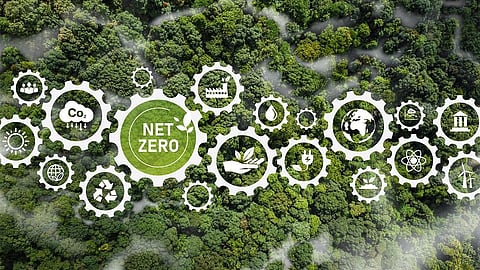Bio-CNG projects as carbon credit generators
The Ministry of Power has notified the Carbon Credit Trading Scheme 2023, signalling a major milestone in the country’s efforts to combat climate change.
With the introduction of a market-based mechanism to incentivise emission reductions, the framework aims to foster innovation and encourage industries to adopt cleaner and more sustainable practices. Notably, Bio-CNG emerges as an important project category eligible for carbon credits.
Before delving into the details, let’s clarify the concept of carbon credits. These financial instruments are designed to mitigate greenhouse gas emissions and address climate change.
Generally, one carbon credit represents the reduction, removal, or avoidance of one metric tonne of carbon dioxide (CO2) or its equivalent in greenhouse gas emissions. The Clean Development Mechanism, established under the United Nations Framework Convention on Climate Change’s (UNFCCC) Kyoto Protocol in 1997, enables countries to earn carbon credits by investing in emission reduction initiatives in developing countries.
Among the various pathways to earn carbon credits, the production of Bio-CNG is one. Bio-CNG is a sustainable fuel derived from biogas purification, offering a renewable alternative to non-renewable CNG sources. It shares the same properties as CNG and can be used as fuel for vehicles, electricity generation and industrial purposes. Biogas is generated through the anaerobic decomposition of organic materials, including municipal solid waste, agricultural residue, wastewater and press mud.
According to sources, the carbon credits earned from producing a tonne of Bio-CNG fall within the range of 16 to 25 credits, depending on the feedstock utilised.
Each credit holds a value between $5 and $15 in the current international market. For a 5-tonne-per-day Bio-CNG plant, this translates to an annual revenue ranging from Rs 14,94,935 to Rs 4,48,41,071.
The potential of this market is enormous, with developing countries leading the way. A notable example is the Indore Bio-CNG plant, which processes a massive 550 tonnes of organic solid municipal waste daily. The plant produces 17,000 kg of bio-CNG and 100 tonnes of organic compost at full capacity. This Bio-CNG plant fuels the city’s buses and is estimated to earn around 130,000 carbon credits annually.
The credits earned through this process can be traded in two markets. The mandatory market is utilised by companies and governments that are legally obliged to offset their emissions. Participation in this market is typically limited to countries that have committed to and implemented emission restrictions outlined in UNFCCC.
On the other hand, the voluntary carbon market operates independently from compliance markets, allowing private enterprises and individuals to voluntarily procure carbon credits on an international scale. India’s National Designated Authority for the Implementation of the Paris Agreement has assessed compressed biogas or Bio-CNG as falling under greenhouse gas mitigation activity, enabling the trading of carbon credits earned in this market through international market mechanisms.
Bio-CNG plants offer three significant environmental benefits. First, when used as a fuel, Bio-CNG emits significantly lower levels of greenhouse gases compared to traditional fossil fuels like diesel or gasoline. Vehicles running on Bio-CNG emit only 120 grams of CO2 equivalent per kilometre (g CO2 eq/km) compared to petrol (150 g CO2 eq/km) and diesel (140 g CO2 eq/km).
Second, Bio-CNG production contributes to effective waste management by diverting organic waste to generate clean energy. This process reduces waste accumulation and addresses issues such as landfill emissions and stubble burning.
Third, the by-product of the production process, fermented organic manure or slurry, serves as an excellent organic fertiliser for the soil. When applied, it enriches the carbon content of the soil and does not pollute the environment like chemical fertilisers.
However, the current carbon credit methodology for Bio-CNG primarily focuses on the clean energy aspect while neglecting waste management and organic fertiliser components.
Hence, it is of utmost importance to expand the scope of this methodology to include the carbon emissions saved through waste mitigation and the replacement of chemical fertilisers. These are significant areas in which the Delhi-based think tank Centre for Science and Environment is actively engaged.
Furthermore, the absence of clear guidance on the accumulation of carbon credits for Bio-CNG plants leaves entrepreneurs uncertain about the appropriate course of action. It is essential to prioritise the widespread dissemination of knowledge concerning carbon credit mobilisation within the Bio-CNG sector in the country. This dissemination is crucial for the sector’s success and profitability as a green energy source.


